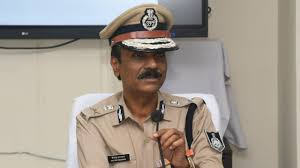Madhya Pradesh top cop says police alone can’t prevent rape, points to alcohol, ‘obscene content’

Madhya Pradesh’s Director General of Police (DGP), Sudhir Saxena, recently made a bold statement on a sensitive issue. He said the police cannot prevent rape on their own and called on society to tackle deeper problems like alcohol abuse and exposure to obscene content.
Saxena made these remarks at a crime review meeting. The gathering included senior police officers and administrators. His comments sparked discussions across political and social circles, emphasizing the need for broader societal action.
Saxena’s Message: Policing Isn’t Enough
“Policing is reactive. We step in after a crime occurs,” Saxena said. “But prevention is a shared responsibility. Alcohol consumption, obscene content, and moral erosion play a large role.”
He stressed that many crimes, including rape, stem from behavioral influences that begin at home or in the community. The police can act swiftly during investigations, but deeper change must come from society.
Alcohol’s Impact on Crime
Saxena strongly criticized the link between alcohol and violent behavior. He said many sexual assault cases involve perpetrators under the influence of liquor. NCRB data supports this trend across India.
Madhya Pradesh faces ongoing criticism for widespread liquor access. Activists argue that alcohol shops near schools and homes increase the risk of violence. Women’s groups have also demanded stricter liquor policies.
“Alcohol impairs judgment. It pushes some people toward violence,” Saxena said. “We need public awareness, not just regulation.”
The Problem with Obscene Content
Saxena also blamed widespread access to obscene material for fueling violent attitudes. He pointed to mobile phones and internet content that portray women in degrading ways. This, he said, distorts young minds.
“Young boys watch this material with no one guiding them,” he explained. “They learn the wrong lessons about consent and relationships.”
Experts say lack of sex education in schools makes the problem worse. In many families, sex and consent remain taboo subjects. Without guidance, harmful content becomes a source of false learning.
Society Must Share the Responsibility
Saxena made it clear: police action alone cannot stop gender violence. Families, schools, religious leaders, and the media must take part in prevention.
He urged parents to talk openly with their children. Teachers, he said, should focus more on values and emotional education. Community leaders must also speak out against disrespect toward women.
“We need a cultural shift,” Saxena said. “Society has to treat women with respect. That begins at home, in classrooms, and in public life.”
Reactions to the Statement
Saxena’s message received mixed reactions. Many praised his honesty and focus on root causes. Others warned that blaming society should not excuse institutional failure.
Women’s rights advocate Anuradha Sharma agreed with his concerns but stressed that police reform remains vital. “Yes, society shapes behavior,” she said. “But police still need to ensure safety and swift justice. Victims must trust the system.”
Some critics feared that his comments could lead to censorship. They argued that moral policing often harms freedom of expression. Instead, they urged a focus on responsible digital use and comprehensive education.
Educating Youth Is Key
Education plays a critical role in shaping attitudes. Experts say that schools must include gender sensitivity, respect, and consent in their curriculum. Yet many institutions shy away from these topics.
Saxena suggested launching awareness drives in schools and colleges. “We need to speak with our youth,” he said. “They must learn to respect others, especially women.”
Programs in some Indian states have already included safe relationship modules. Madhya Pradesh could follow this model to prevent future crimes.
Combining Policing With Prevention
While law enforcement plays a vital role, it cannot work alone. Saxena’s message calls for action on two fronts: strict policing and deep social reform.
Alcohol laws need review. Schools must adopt modern, inclusive education. Families should foster open conversations. Religious and community leaders must break their silence on gender violence.
Police can only act once a crime is reported. Society must stop the crime before it begins.
A Wake-Up Call for All
Saxena’s words carry weight. They reflect the frustration of a system overburdened with responsibility. His call for shared action is a reminder that change starts at many levels.
From street corners to classrooms, and from homes to Parliament—every space must become safer for women. That won’t happen through law enforcement alone. It requires empathy, education, and the will to change.
Conclusion
Madhya Pradesh’s top cop has issued a necessary challenge. If society truly wants to reduce sexual violence, then it must confront its own habits and values. The police are a crucial part of the solution—but they cannot be the only one.






